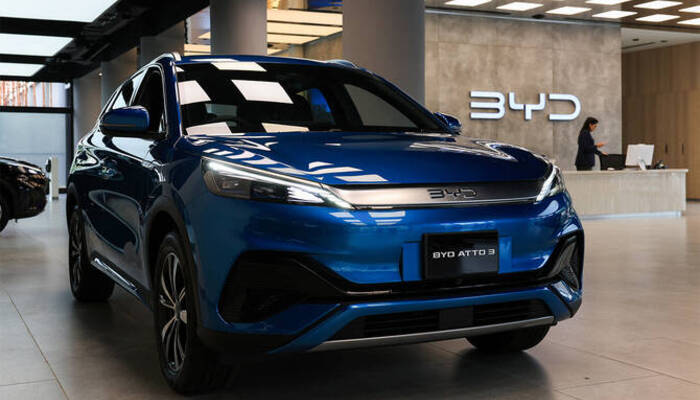
The momentum of BYD car sales is reshaping Pakistan’s auto market, with more than 2,000 units sold in under six months and over 500 fresh orders already placed for its Shark model. Hub Power Company (Hubco), which oversees the brand in Pakistan, confirmed that the company is currently importing completely built units (CBUs) under the normal duty regime.
Hubco Announces Expansion Plans
To meet growing demand, Hubco is setting up a completely knocked down (CKD) assembly plant in Gharo. The plant will have an annual production capacity of 25,000 units. According to an analyst briefing, the financial close of the project is expected in the last quarter of 2025.
The project carries an estimated cost of $150 million, built on a 60:40 debt-to-equity structure. Both local and foreign lenders have expressed interest, with a term sheet already signed. Hubco expects CKD production to begin within 24 months, signaling a major step toward localizing vehicle manufacturing.
A Unique Partnership Model
Hubco clarified that the assembly project is a 50:50 joint venture between Hub Power Holding, its wholly owned subsidiary, and Mega Conglomerate. Notably, BYD has not taken an equity stake in the venture.
This marks a departure from BYD’s global strategy. In markets such as Thailand and Brazil, the company opted for 100 percent ownership. Pakistan’s model, therefore, represents its first international partnership without direct equity participation.
Read: SBP Faces Policy Dilemma Amid Flood-Driven Inflation Risks
Focus on EV Charging Infrastructure
The future of electric mobility depends not only on vehicles but also on charging networks. Hubco highlighted that its initial chargers were sourced from Europe. However, Chinese suppliers now provide more cost-effective alternatives.
The company emphasized that an EV charging station becomes financially viable with the daily usage of just three vehicles. Building on this, Hubco plans to roll out chargers every 150 to 200 kilometers along the Karachi-Peshawar Motorway within the next six months. This move aims to address range anxiety and build confidence among potential EV buyers.
Local Competition in Hybrid Segment
While BYD expands its footprint, local players are also making moves. Sazgar Engineering Works Limited has announced plans to launch CKD models of the TANK-500 and CANNON plug-in hybrid electric vehicles (PHEVs) by March 31, 2026.
Sazgar had already made history in Pakistan’s auto sector by launching its first CKD PHEV, the Haval H6 1.5L, on August 16, 2025. This development, detailed in its FY25 annual report, underscores the growing shift toward electrified mobility solutions across the country.
Rising Demand Reflects Market Potential
The early success of BYD sales highlights the potential of Pakistan’s EV sector. More than 2,000 cars sold in such a short span demonstrate strong consumer interest, even in the absence of a robust charging infrastructure. The 500-plus pre-orders for the Shark model further indicate that customers are willing to wait for advanced EV options.
Analysts believe that local assembly through CKD operations will make BYD cars more affordable and competitive. By reducing reliance on imports, costs can be controlled, and delivery times shortened. This strategy aligns with government efforts to encourage localization and job creation in the auto sector.
Challenges and Opportunities
Despite the progress, challenges remain. Pakistan’s EV adoption depends heavily on infrastructure readiness, supportive policies, and consumer awareness. Flood-related disruptions, energy shortages, and macroeconomic pressures pose risks to sustained growth.
However, the joint venture between Hubco and Mega Conglomerate provides a model of resilience. With significant investment and strategic planning, the companies aim to overcome these barriers. The focus on building a nationwide charging network shows commitment to long-term success.
Broader Industry Transformation
The developments around BYD and Sazgar highlight a broader transformation in Pakistan’s automotive industry. Traditional players, long focused on internal combustion engines, now face competition from new entrants offering electric and hybrid alternatives.
Global trends also support this transition. With major economies pushing for greener technologies, Pakistan’s shift toward EVs reflects alignment with international standards. Local consumers, increasingly conscious of fuel costs and environmental concerns, are also driving demand.
Looking Ahead
The road ahead for BYD in Pakistan looks promising. With strong initial sales, a major investment in CKD operations, and an aggressive plan for charging infrastructure, the company is positioning itself as a leader in the local EV market.
At the same time, domestic competitors like Sazgar are adding diversity to the market by offering hybrid alternatives. Together, these moves indicate that Pakistan is entering a new phase in mobility, one driven by innovation, sustainability, and global integration.
Follow us on Instagram, YouTube, Facebook,, X and TikTok for latest updates
